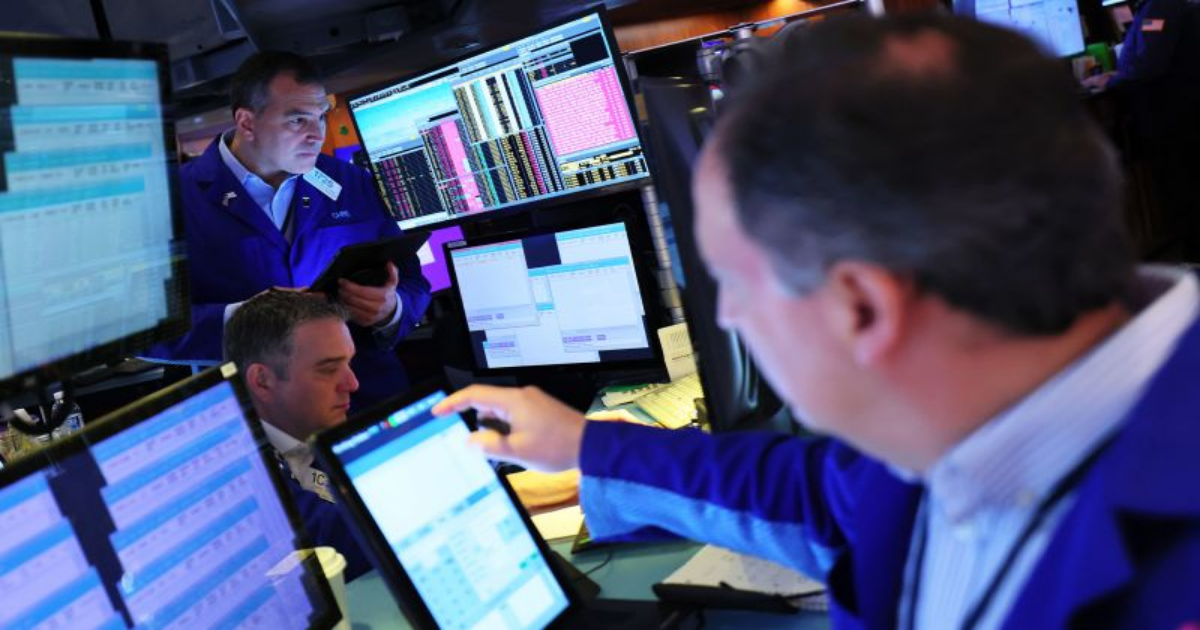A version of this story appeared in CNN Business’ Nightcap newsletter. To get it in your inbox, sign up for free here.
New York CNN —
A fluke of social media rumor-mongering just served up the closest thing to a crystal ball as you can get on Wall Street. And for President Donald Trump, it’s a glimpse at a future where he can be the market hero. If he’s paying attention.
Stocks tumbled Monday as investors around the world tried to digest just how devastating Trump’s self-inflicted tariff pain will be to the global economy. On Wall Street, major indexes opened more than 3% lower, in so-called bear-market territory — more than 20% off their most recent high just seven weeks ago.
It looked like yet another day of hemorrhaging market value in response to last week’s tariff announcement.
But less than an hour after the market opened, stocks abruptly reversed course, surging 8% in a matter of minutes. (Which, just to be clear, does not happen on a normal day.)
The jolt into positive territory was short-lived — a spark of hope kindled by a bogus rumor that Trump was weighing a three-month delay on tariffs. (The unsourced headline appears to have come from a tiny account on X, though as of Monday evening it was still unclear how it ultimately ended up on a CNBC chyron.) Once traders realized there was no truth to it, they sold off once again and returned stock tickers to a sea of red.
Weird. But potentially instructive, if Trump is paying attention.
That fleeting moment of buying enthusiasm represented a potential off-ramp that we rarely (never?) see in a market sell-off this severe. It was Trump — not a pandemic, or a war, or the collapse of a financial house of cards — that created this mess. And with one sentence, he could undo all of it.
Traders pounced on the fake headline because they are desperate for a sign — any sign — that a voice of sanity will make it into Trump’s ear. Any kind of delay would buy corporations some time to rearrange their supply chains and blunt the shock of tariffs. Even an indication that the White House is willing to negotiate with trading partners could help stem the losses.
But the cavalry of sanity isn’t coming. At least not yet. And at this point, the White House is already getting blamed for the financial market losses anyway, so there’s no real point in reversing course now, Mike O’Rourke, chief markets strategist at Jones Trading, told me Monday.
To its credit, the Trump administration is doing exactly what it has said it would do for months. It’s just that Wall Street didn’t expect the tariffs to be as harsh as they are, and they didn’t expect Trump to be so reckless with the stock market — the institution he once viewed as a real-time report card on his presidency.
“I think it’s setting in that they’re going to follow through on this,” O’Rourke said. “And then the problem is, we’re going into earnings season, and you just have to think that every company is going to have negative comments … There’s not much you can optimistically look forward to, except the announcement of some type of trade deal that shows us a path forward.”
The White House’s muddled messaging on tariffs isn’t helping manage investors’ expectations.
While Commerce Secretary Howard Lutnick and White House trade adviser Peter Navarro assured news outlets over the weekend that the tariffs are happening, Trump himself on Sunday indicated he was open to negotiating and that he’d been fielding calls from tech executives and world leaders all weekend. (CNN has reported that the Trump administration is in active discussions with Israel, Vietnam and India about the possibility of bespoke trade deals.)
With uncertainty emanating from DC, some on Wall Street say it’s time to send an unambiguous message to the president and his team: Don’t buy the dip.
Stocks are cheaper than they were a week ago, so it’s only natural investors may take a break from the sell-off and load up on some bargain assets. But going into dip-buying mode risks rewarding Trump for playing chicken with the global economy. Like training a puppy, you sometimes need a negative correction if you want it to stop peeing on the rug.
”We need this market to crash — to keep the pressure on the administration,” Ed Yardeni, president of Yardeni Research, told my colleague Matt Egan on Monday. That is a frankly shocking comment from an analyst as prominent as Yardeni, who also happens to have a Ph.D in economics from Yale.
